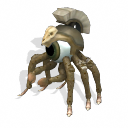Sugar beet farmers have the green light to use a banned pesticide deadly to bees following a forecast that a virus could sweep through their crops.
Emergency authorisation to use neonicotinoids was given in January but rested on a threat level being met.
Supplier British Sugar said the predicted infection rate was now 83% of crop and was “historically high”.
Defra said the decision to approve was not “taken lightly” but campaigners said it made “a mockery” of the ban.
Neonicotinoids are toxic to pollinating bees, disrupting their ability to navigate and reproduce. But some sugar beet farmers say the pesticides are needed to protect against the disease known as virus yellows.
It sucks this is toxic to bees but this beet disease sounds like a legitimate major issue. I’m guessing there aren’t other pesticides that could be used?
I believe there are, but they are worse.
The disease is carried by aphids that are generally killed by hard winters. We are now getting milder, wetter winters due to climate change, so are more and more likely to get high numbers of overwintering aphis surviving.
It seems that things are not ad bad in continental Europe, since although they may be getting warmer winters, they are usually not as wet and so not as good for the aphids in the first place.
Really, you have to wonder whether the UK actually is a sensible place to growing sugarbeet at all now.
This is the best summary I could come up with:
Sugar beet farmers have the green light to use a banned pesticide deadly to bees following a forecast that a virus could sweep through their crops.
“This year’s forecast for virus yellows infection is historically high and exceeds the threshold of 65% to use the seed treatment, as set by Defra in January,” he told the BBC.
Previous years have seen the predicted threat range from 8% in 2021 to 85% in 2020, a season when the virus was estimated to have eventually cost growers £43m.
But environmentalists and wildlife campaigners have warned that the decision will be devastating to bees and pointed out that the government had now approved neonicotinoid use for four consecutive years.
Richard Benwell, the CEO of Wildlife and Countryside Link, said: “To have four emergency authorisations in a row makes a mockery of the ban, and now the trigger has been reached, nature will once again have to endure exposure to this harmful chemical.”
Barnaby Coupe, land use policy manager at The Wildlife Trusts, said the organisation was “hugely disappointed” but called for farmers to be given more support to grow sugar beet without resorting to chemicals.
The original article contains 519 words, the summary contains 192 words. Saved 63%. I’m a bot and I’m open source!
Aren’t sugar beets harvested long before they flower?
It isn’t bees being attracted to suragbeet flowers that is the problem. The pesticides and their breakdown products can reach bees by several other routes: crops planted afterwards, plants growing nearby, fluids produced by the beet themselves and fluids produced by crops growing afterwards. Here is the DEFRA summary - and here is the British Beekeepers Assoc. view..





